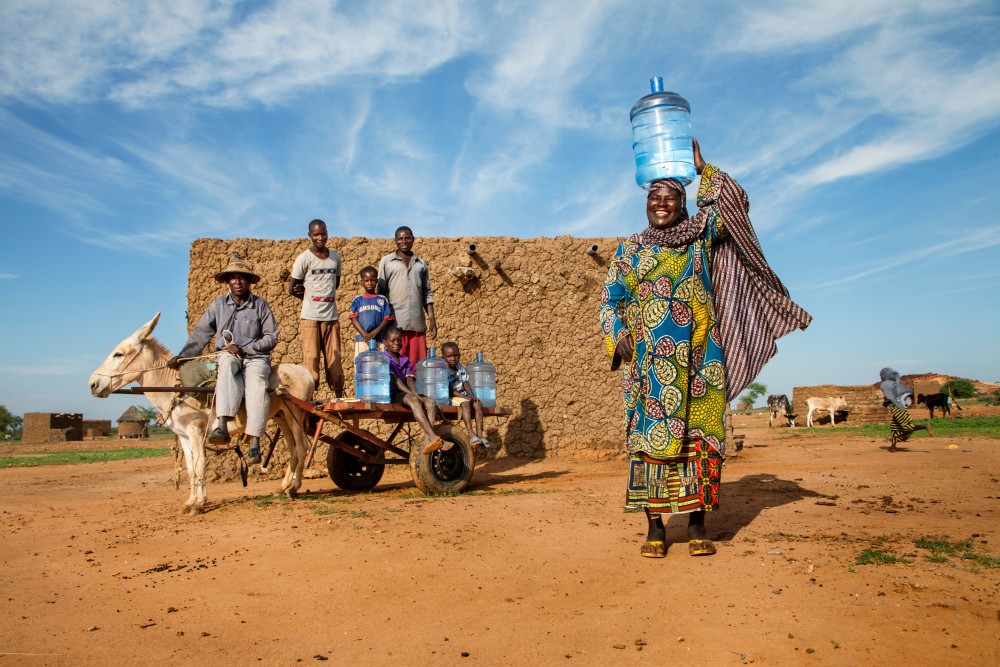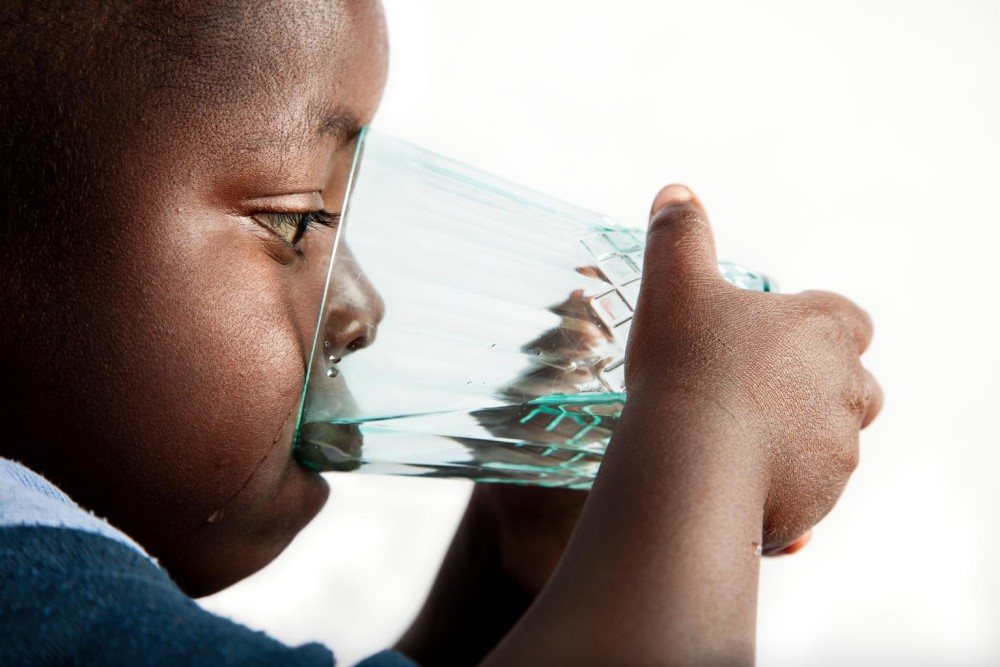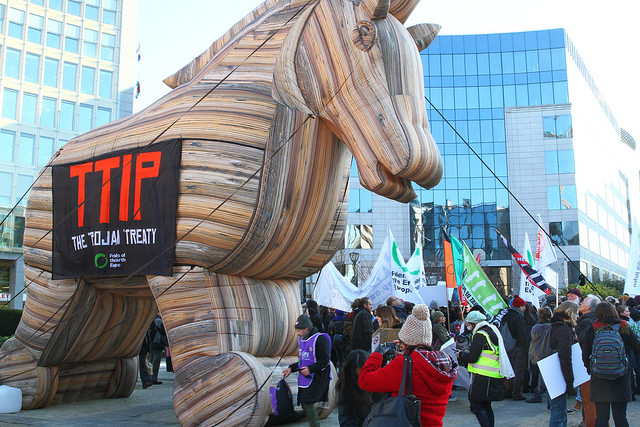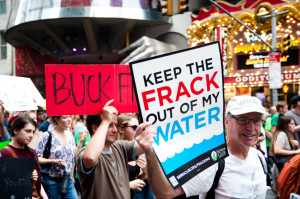UNICEF on MDG SDG and WASH
Global Water Crisis
Water is a massive issue, with commentators suggesting it could cause more conflicts than even oil has. Whereas there are alternatives for fuel, there is no alternative to water, and for that reason alone we should all be very concerned with global and local water issues.
UNICEF and Development Goals
Water and Environment Senior Advisor at UNICEF, Cecilia Scharp, has been a key player in ensuring a stronger focus on water and sanitation issues for the United Nations Sustainable Development Goals (SDG) – policy that will shape global development for at least the next 15 years.
These much anticipated goals – with the focus on sustainability – supersede the UN’s Millennium Development Goals (MDG) which covered the period between 2000 and 2015 and had a water target of reducing by half the number of people without safe water access. That target, while achieved several years before the 2015 deadline, still leaves over 650 million people globally with no safe water access.
We asked Cecilia what was different this time around.
“The new Goal 6 is focusing on the whole water cycle, and for the two water and sanitation targets we’re talking about universal access; that is everyone is going to be covered everywhere.
“It also states that the targets should be affordable, sustainable, safe. There were lots of adjectives added that gives us the opportunity to work more broadly with the sector overall, and that for us is key.
“Previously in the MDG agenda there was a call to target only the population without access to water and sanitation, and if you look at the real purpose of having global goals it would be to drive an agenda, to drive policy, and for water and sanitation I believe those targets have made a real difference. We were able to carry out a global monitoring, we could get more money to the sector, and more focus in countries for delivery of drinking water. The problem was though we did not necessarily reach to the most marginalised and vulnerable people.

©UNICEF/2016/Niger/Ashley Gilbertson
Sustainable Water Access
“But access is just access – unless you have the management systems, government systems, institutions, internal capacity, etc – this access is not sustainable. So really the target is to drive innovation to monitor services in real time – to ensure they are better managed, more sustainable – and providers are held accountable by the people who use their services.”
Sounds simple enough right – the target of reaching 100% of the world’s population with sustainable water access? As Cecilia explained, the ‘devil is in the detail’. The targets are being translated into indicators for ongoing measurement to determine success levels around ‘safely managed water and sanitation’ addressing issues such as the length of time taken to collect water.
“There wasn’t a uniform definition previously on what access actually meant and it was up to the governments to decide what it meant. Now there is a growing consensus on a definition that talks about a 30 minute round trip including queuing and doing [filling containers] so it shouldn’t take more than 30 minutes for family to collect the water they need for the day.
“There a lot of things embedded in the indicators that we are fighting for the moment to really push the broader agenda and I think that will make a difference for us. The other issue now is there are targets on hygiene, water quality and waste water management, so that’s another area that wasn’t at all addressed [in the MDGs].
“We know most countries release waste water directly into the environment without treatment. So there will be a push for understanding water quality broadly at the water point, at home when you drink it and now also- at the resource level, so for us that’s hugely important.”
From MDG to SDG
The water targets do go much deeper into society than on the previous set of goals, which the UN admits were constructed by ‘a group of experts behind closed doors’, whereas the sustainable development goals involved the 193 member states and ‘unprecedented participation of civil society and other stakeholders’.
Goal 6 of the 17 SDGs is to: Ensure availability and sustainable management of water and sanitation for all. And it comes with a number of proposed targets that also consider ecosystems, and water resources management, wastewater and pollution, and water use efficiency, alongside the water and sanitation issues.
While she may have preferred a more explicit link to health and education, Cecilia is pretty happy with the targets and says she wouldn’t have incorporated any additional focus on water at the expense of the 17 goals. Given the number of member states agreeing to the goals and the specific wording of the targets, it’s seen overall as a success.
But now the real test begins: “The challenge now is for the governments to take these goals, to make sustainable development strategies and to figure out how to implement them, and what this means in terms of financing and capacity developments, and institutional developments, technology, innovation etc.
“Now we have the goals we are struggling with the indicators, and that will be a very difficult process in itself because member states understand that this is where it starts to get real– and they need to show the global community that they can deliver. That is why there will be a lot of political discussions in the coming months.
“I think previously we thought that developing the indicators was a technical task done by technical people, but now has become much more political and [member states] wants to have much more say and only ask UN agencies or other expert groups for support when needed. This could be a bit unfortunate because we now have member states who are driving in different directions and they will go back to their constituencies saying ‘OK what is it we can do?’”
Cecilia explains that member states have their own agenda based on whatever situations exist in their specific country and this can affect the development of indicators and monitoring. “From the UNICEF perspective we have been the ones together with WHO that have been monitoring water and sanitation so we have the set up on how to monitor and collect data how to analyse and present data, so we felt we were in good shape to propose indicators. Now member states work on that themselves but we hope they build on what is suggested building on experience.”

©UNICEF/2016/Malawi/Ashley Gilbertson
Universal Access to Water
So given all the work that has gone into researching, consulting, and agreeing the next 15 years of global development targets, is there any confidence on achieving the goal of universal access to water, as the MDGs had been criticised by some for failing to provide water access for the very poorest, rural communities?
“Certainly we are really happy we had achieved the Millennium Development Goal on water, but obviously the inequalities with this achievement are huge. The main gains were in countries like India and China but not in West Africa for example. If the progress rate from 1990 to 2013 in West Africa was replicated up until 2030 – we would miss the new target of universal access by a long shot. At the current rate of progress, we would only be able to reach 75% access to safe water in West Africa – which isn’t good enough. Those remaining 25% represent some of the world’s poorest people – and they must a priority in the next 15 years.
“Many countries have done very well and now Ethiopia has achieved its millennium development goal for water which is great, fantastic, but there are many many countries particularly in south of the Sahara that would have a huge struggle if we continue at the same pace.”
While some may be wondering if the SDG targets have overstretched themselves in their optimism, Cecilia is positive but realistic: “The 2030 goals are very ambitious is good to have ambitious goals – that’s where everybody should strive for.
“Countries facing the challenges of climate change or experiencing other humanitarian situations and political turmoil will continue to struggle, so it’s going to be challenging to meet the 2030 targets. If we ‘only’ have 663 million people remaining it’s still a huge number living without access to safe water. But with the correct political will and investment, I believe we can get there”
In order to reach the goal for 100% access Cecilia believes something ‘really radical’ will need to happen. Given the seeming increased conflict in the Middle East with a crisis in Syria where water is a potential underlying cause of the conflict and has been used as an instrument in the war, this poses even more challenges for meeting the SDG on water and it will be interesting to see how the UN, and UNICEF in particular, deal with this.
For now, and for the aftermath of the 70th UN General Assembly held in September, it’s a moment to celebrate for Cecilia and her sector on the culmination of several years of negotiation and consultation. The goals are ambitious but provide the broad agenda that manages to encapsulate many more facets of water and sanitation provision than ever before.
For more information visit https://sustainabledevelopment.un.org/ or http://www.unicef.org/ or follow Unicef on twitter @unicefwater or facebook https://www.facebook.com/unicef



